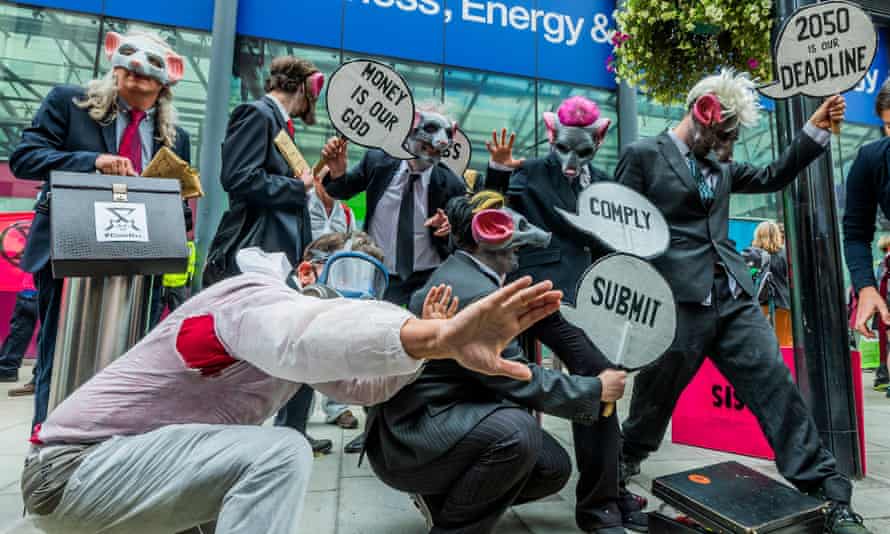Animal rights activists linked to Extinction Rebellion have painted the fountain outside Buckingham Palace red, accusing the Queen of having “blood on her hands”.
Animal Rebellion activists stained the fountain and its waters on Thursday, protesting against the use of crown lands for hunting and animal agriculture, as well as the Queen’s attempts to have her land exempted from an initiative to cut carbon emissions.
“[The protest was] to symbolise the blood on the Queen’s hands and the royal family’s crimes against animals and our planet,” said Dora Hargitai, the co-founder of Animal Rebellion, accusing them of “decimating the environment”.
“We believe crown land should be used to grow healthy and nutritious food for all of us,” she said. “We cannot resolve the climate crisis without resolving the animal crisis and food crisis at the same time, which are all interlinked.”
Meanwhile, XR protesters staged a sit-in outside the Department for Business, Energy and Industrial Strategy on Thursday, demanding an end to new investment in fossil fuels.
The “stop the harm” march brought XR together with partner groups including campaigners against road building and the HS2 rail project, and for the protection of animals.
“The key message of today is stopping the harm. When you’re in an existential crisis, when the life support systems of the earth are literally breaking down … the first thing you do is to stop the harm,” said Gail Bradbrook, an XR co-founder. “Unfortunately our government, and this department in particular, is actively involved in harming our planet.”
She said the government’s environmental pledges were “hot air”, carrying a two-page list which, she said, showed how for each pledge made by the government it had enacted policies that undermined them, for example through road investments and HS2.
Bradbrook also highlighted the government’s investments into fossil fuels, including the Cambo oilfields in Scotland and, further abroad, Mozambique’s gas fields.
The department has been targeted by previous XR protests – in 2018, activists glued their hands to the department’s windows and in 2019 doctors protested outside to focus on how the climate crisis was affecting health.

Caspar Hughes from XR Roads Rebellion, the transport-focused movement, called for an end to investment in road building, which he said led to more investment into and use of fossil fuels.
Hughes said that, after four days of the current disobedience campaign, he was encouraged by the reaction and that the public found it easier than in the past to understand the “immediate demand” to stop fossil fuel investment.
“Stop investing in fossil fuels, it’s simple. It’s really striking home. The public is starting to get it and the media is starting to get it,” he said. “We’re spending £27bn on building new roads, which is complete, total suicide. If you build new roads they get filled up with new cars; each car is 12 tonnes of embedded emissions.
“It’s that immediate demand that’s really important. It’s something we have to do now. It’s not a case of doing anything, it’s a case of stopping doing something that’s going to kill us. We can stop searching for new fossil fuels.”
When the march arrived at the department, the author Rupert Read opened the speeches by calling for a minute of silence for everyone who had died from the climate emergency “in the unprecedented American heat dome, in the ring of fire around the Mediterranean, in the appalling fires spreading over Siberia, in the floods in Japan, Germany, Belgium, in many frontline climate states”.
Hannah Crowther, 21, a student, said she joined the protest after deferring her final year of university to focus on environmental campaigning.
“This is literally the most important crisis we’ve ever faced, so I can’t wait any longer. I’m in a lucky position where I feel like I can give that time. I’m pretty scared – I think I’ve been thinking about climate change since I was 11,” she said.
She said she had spent her time speaking to people about their goals and wanted more people to engage with them, especially those concerned about the movement’s tactics or its image as being mostly white and middle-class.
Average Rating